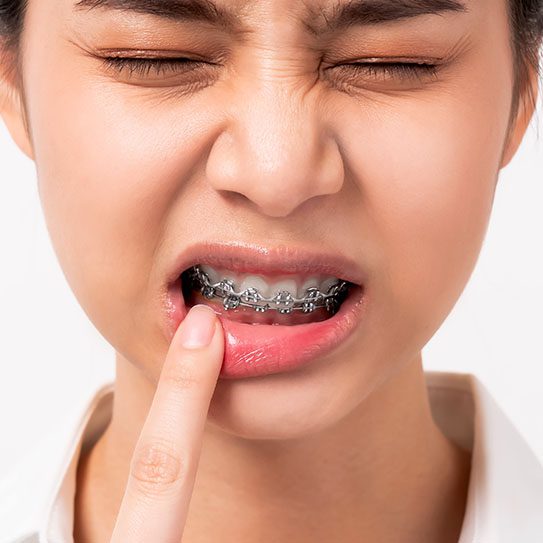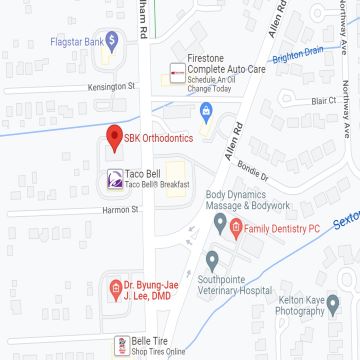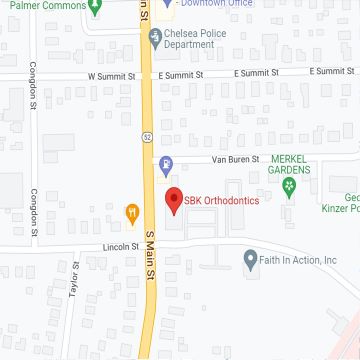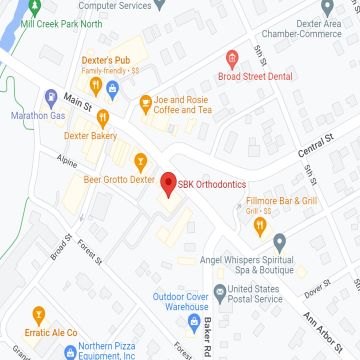Braces Pain: What It Means and What to Do

From Tension to Comfort: Overcoming Braces Pain
Anyone who has ever worn braces knows that some level of discomfort is part of the process. While braces are an effective tool for achieving a straighter, healthier smile, braces pain is a common side effect, especially shortly after the braces are adjusted. Understanding what causes this pain and how to manage it can make your orthodontic journey more comfortable.
Understanding Braces Pain
Braces work by applying continuous pressure to the teeth to gradually move them into the desired position. This process involves the slow remodeling of the jawbone, which is why braces are so effective in transforming smiles. However, it’s this pressure that can cause discomfort, particularly in the first few days after your braces are put on or adjusted.
Types of Braces Pain:
- General Soreness: When you first get your braces, and sometimes following adjustments, you may experience a general soreness in your teeth and gums. This discomfort is perfectly normal and usually subsides within a few days.
- Irritation: The brackets and wires can also irritate the inside of your lips and cheeks, especially when they are newly fitted. This type of irritation tends to decrease as your mouth becomes accustomed to the hardware.
- Jaw Pain: As the braces gradually move your teeth, the changes in your bite can cause temporary jaw discomfort. This is less common but can occur, particularly after an adjustment.
Managing Braces Pain
Dealing with braces pain is all about minimizing discomfort and promoting healing. Here are some effective strategies to help manage and alleviate pain associated with braces:
- Oral Pain Relievers: Over-the-counter pain relief medications such as ibuprofen or acetaminophen can help reduce soreness and inflammation. Always follow the recommended dosage instructions or consult with your orthodontist about what they recommend.
- Oral Anesthetics: Products like Orajel can be applied directly to the gums and sore areas in the mouth to numb the pain temporarily.
- Soft Foods: After getting braces or having them tightened, stick to soft foods that require minimal chewing. Soups, smoothies, yogurt, and mashed potatoes are great options that will help prevent further irritation to your gums and teeth.
- Cold Compresses and Ice Water: Swishing with ice water or applying a cold compress to the outside of your mouth can help reduce soreness and swelling. The cold helps to numb the area, providing temporary pain relief.
- Wax: Your orthodontist can provide you with special orthodontic wax that can be applied to the brackets that are causing irritation. This wax creates a smooth surface and prevents the metal brackets from rubbing against the inside of your mouth.
- Good Oral Hygiene: Keeping your teeth clean is crucial. Food particles that get trapped can exacerbate pain and lead to infections. Brush gently but thoroughly, and use tools like water flossers and interdental brushes to keep your mouth clean.
When to See Your Orthodontist
While mild braces pain is normal, if the pain is severe or doesn’t improve after a week, it might be a sign that the braces need adjusting. Additionally, if you experience sharp pain or find any broken wires or loose brackets, you should contact your orthodontist immediately. These issues not only cause pain but can also delay your treatment progress if not addressed promptly.
Regular appointments are crucial not just for adjusting your braces, but also for ensuring that there are no underlying issues that could be causing excessive pain. Always communicate any concerns with your orthodontist; they can provide advice or treatment options to help manage your discomfort.
Don’t Suffer in Silence: Speak to Our Orthodontic Team Now
Braces pain is a common part of the orthodontic treatment process, but it shouldn’t be a barrier to achieving the smile you desire. With proper care and management, the discomfort can be minimized, making your orthodontic journey as smooth as possible. Remember, this pain is temporary, but the results of your braces will bring a lifetime of smiles and improved dental health.
If you’re experiencing braces pain or have any questions about your treatment, don’t hesitate to reach out to your orthodontic team in Chelsea. At SBK Orthodontics, we are committed to providing our patients with the support and care they need throughout their orthodontic treatment. Your comfort and health are our top priorities.









